Lanzhou University, as a key comprehensive university directly under the Ministry of Education, is a national "985 Project" and "211 Project" key construction university, as well as a "Double First-Class" university (Class A). Located in Lanzhou, Gansu Province, it is an important industrial base, transportation hub, and research and education center in northwest China. It holds a strategic position in the national higher education landscape and is a crucial hub for cultivating high-level talents and conducting advanced scientific research, especially in the western region of the country. In order to uphold the core socialist values, showcase the beauty of our motherland, and nurture students' lofty aspirations, the College of Earth and Environmental Sciences recently organized the "8th (2023) Geography Summer Camp for Outstanding University Students," with 35 students from 25 universities across the country participating.
On July 11, 2023, the opening ceremony of the summer camp was held at the Qilian Hall on the Chengguan Campus, and Professor Guan Qingyu, Vice Dean of the college, delivered a welcome speech. Following that, Professor Pan Baotian, Vice President of the university, National Teaching Master Professor Wang Nai'ang, and Young Outstanding Scientist Awardee Professor Dong Guanghui gave insightful academic presentations. Professor Li Zhuolun, Professor Wang Jie, Associate Professor Lu Lei, and Professor Gao Hongshan introduced the faculty, research directions, and academic heritage of the disciplines of Physical Geography, Quaternary Geology, Earth System Science, and Cartography and Geographic Information Systems at Lanzhou University. After the presentations, the participants visited the Key Laboratory of Western China's Environmental Systems, where they engaged in professional and academic exchanges with experimental technicians and teachers.
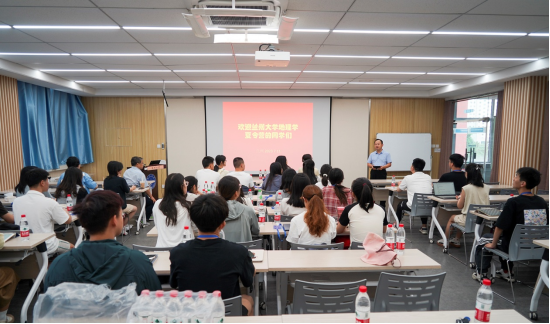
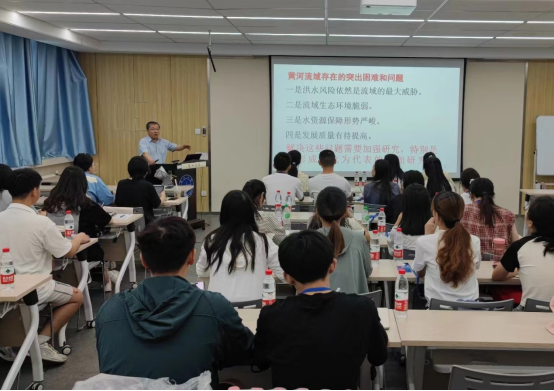
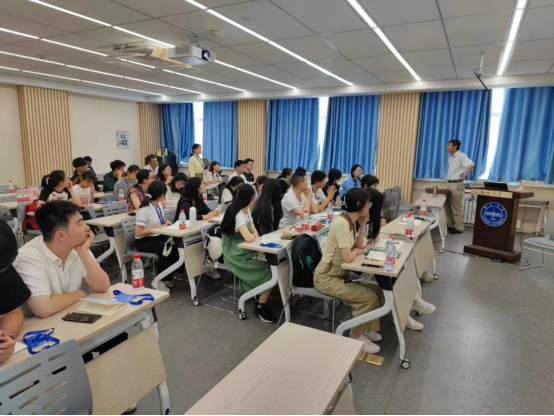
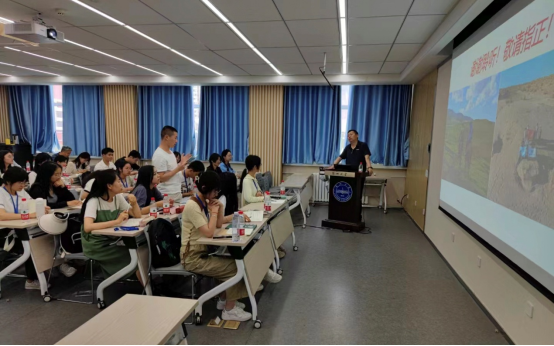
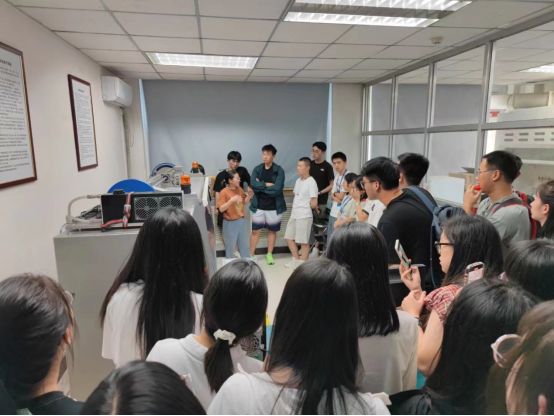
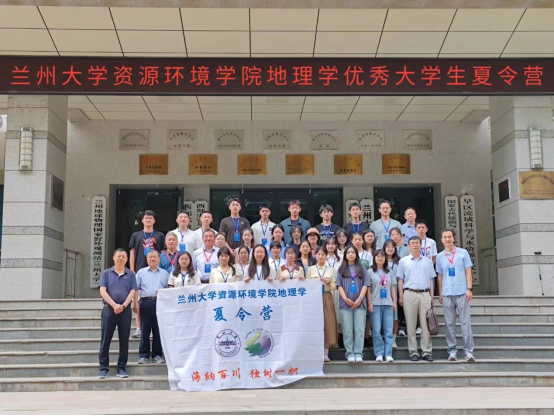
From July 12 to 15, under the guidance of Associate Professor Jin Ming, Professor Gao Hongshan, Professor Li Zhuolun, and Research Fellow Zhang Junzhou, the students conducted field practice around the convergence zone of three major natural zones. They studied the loess strata and environmental changes in the area, the evolution of river terraces and water systems, deserts and vegetation types, the formation mechanism of the Badain Jaran Desert lake group and tall sand dunes, the red bed landforms and plateau uplift, as well as the vegetation vertical zoning spectrum and soil distribution at the Liancheng Forest Ecosystem Field Scientific Observation Station. During the practice, the emphasis was on exploration, deepening their understanding of the theoretical knowledge learned in the classroom, and inspiring students to actively discover problems, form hypotheses, collect data, and interpret viewpoints, thus fostering academic freedom, consciousness, and rigor through intellectual collisions.
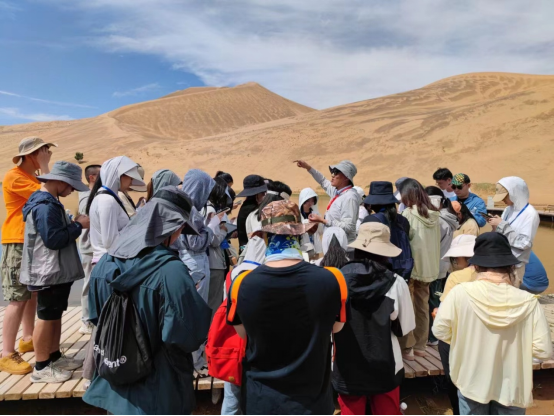
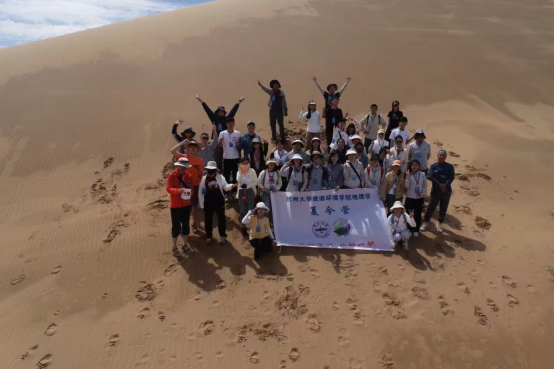
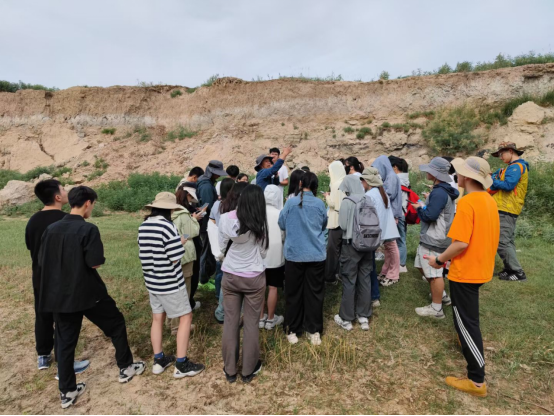
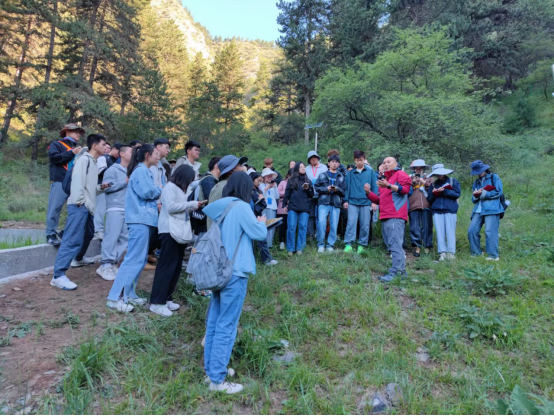
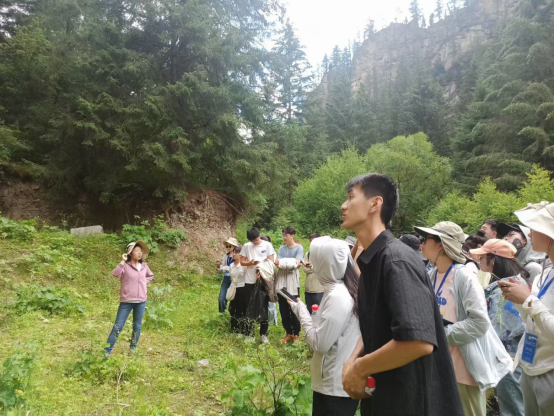
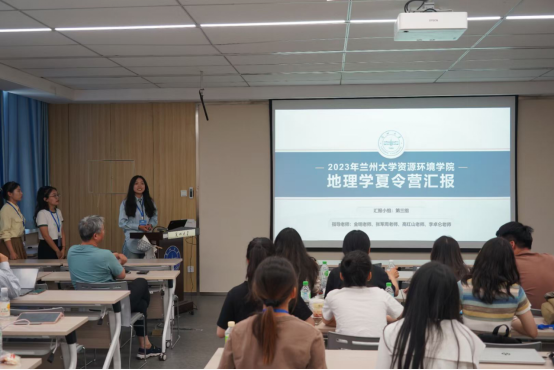
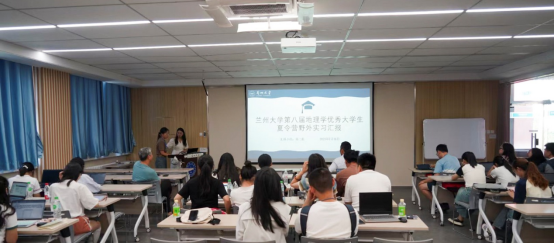
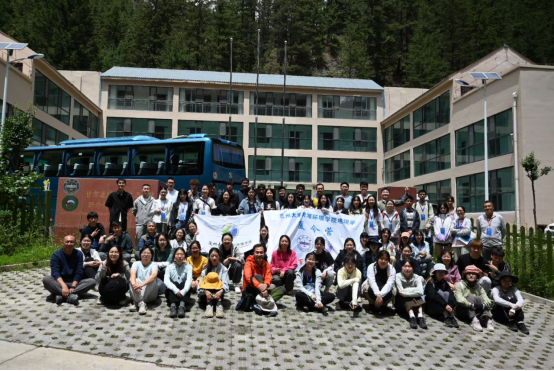
On the morning of July 16, the students presented their findings in groups, and the leading teachers summarized the summer school. The students expressed that they deeply felt the academic atmosphere of Lanzhou University, experienced the integrated approach of practical teaching and scientific research at the College of Earth and Environmental Sciences, and appreciated the rigorous and meticulous academic style of the teachers. They gained many valuable insights and considered the trip fruitful. In the afternoon of the same day, the students had free exchanges with relevant teachers based on their areas of interest, and the summer camp came to a successful conclusion.